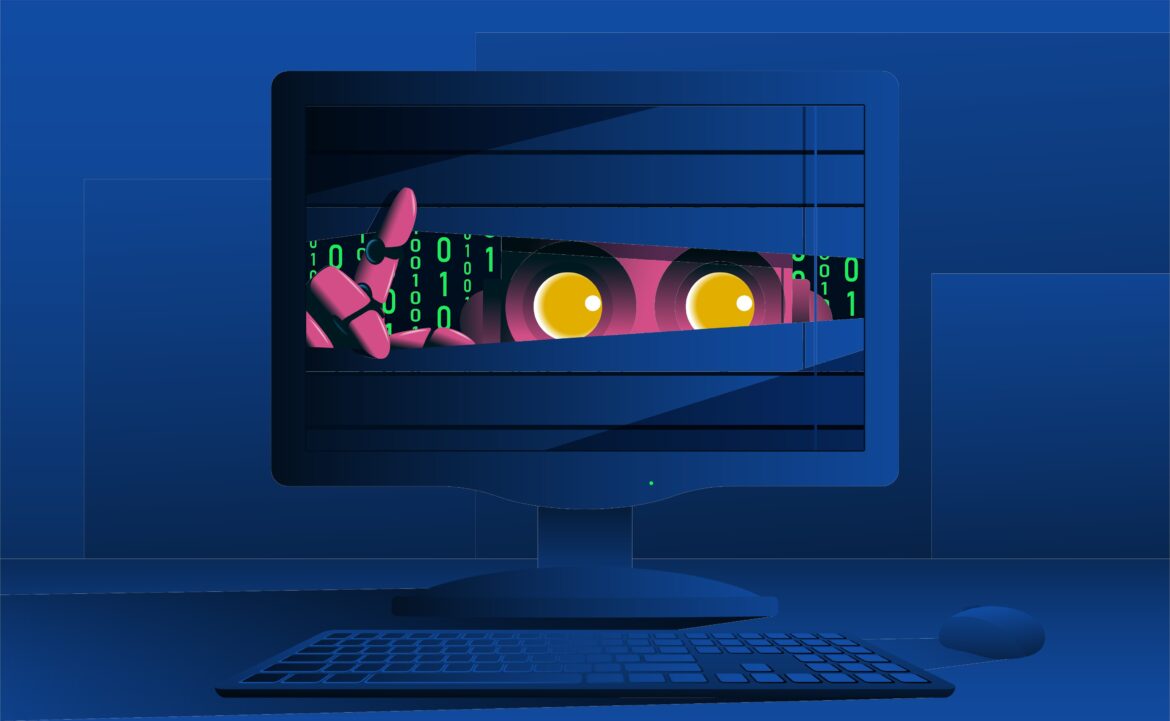Mentions of employee monitoring in Glassdoor reviews have more than tripled over the past four years, with a 51 percent spike in the first quarter of 2025 alone compared to the same period last year.
That’s according to new research by Chris Martin, lead researcher at Glassdoor, who analyzed trends in how workers discuss surveillance and monitoring in anonymous employer reviews. The analysis found a steady rise in references to technologies and practices used to track employees — from general terms like “employee monitoring” and “workplace surveillance” to specific tactics like “badge swipe tracking,” “keystroke logging,” and “mouse jigglers.”
Surveillance anxiety spreads to white-collar roles
While surveillance has long been common in frontline jobs such as call centers and manufacturing, Martin said the trend is increasingly creeping into knowledge-based roles—particularly in remote and hybrid settings.
“Technology-based tracking is now coming for knowledge workers,” said Martin. “Some companies have started monitoring remote employees by tracking keystrokes and mouse clicks or taking regular screenshots.”
The rise of remote work during and after the pandemic appears to have fueled the shift. In many reviews, employees say they worry about maintaining an “active” status on workplace messaging platforms like Teams and Slack, unsure whether inactivity will draw scrutiny.
A 2023 Glassdoor poll cited in the report found that more than one-third of workers (36 percent) were unsure whether they were being monitored by their employers.
Mixed reviews, mostly negative
Not all mentions of surveillance were overtly critical. Some reviewers acknowledged monitoring as a trade-off for remote work. A marketing employee at a moving company described monitoring as acceptable, given the flexibility to work from home. Others listed it as a “con” even in generally positive reviews.
Still, most comments were negative. A technical project manager in fintech criticized surveillance tools as excessive, while a vice-president of operations at an HR consulting firm said monitoring distracted from actual work. One scrum master at a telecom company said surveillance risked driving away talented workers.
Some reviewers shared advice and anecdotes about mouse jigglers—devices or software that simulate activity on a computer. One account executive asked which models were least likely to be detected by corporate monitoring tools. Others warned that some IT professionals are tasked with catching employees who use such tools.
“Some people’s job is to outsmart mouse jigglers, and they’re good at it,” one reviewer said.
Trust vs. control
The report underscores a growing tension between workplace flexibility and employee autonomy. While employers may see monitoring as a way to ensure productivity, the data suggests it may erode trust.
“Employees hate being watched too closely—and more and more feel that this is the case,” Martin said. “While employers may want to catch employees who are playing hooky, the impact of surveillance on your team’s sense of being trusted to do their work may not be worth it.”
About the data
The findings are based on an analysis of U.S.-based Glassdoor reviews from full- and part-time workers, tracking the frequency of mentions of surveillance-related keywords from Q1 2021 through Q1 2025. All figures are normalized against the volume of such mentions in the first quarter of 2021. The report notes that example quotes do not reflect the views of Glassdoor but are illustrative of trends in employee sentiment.






